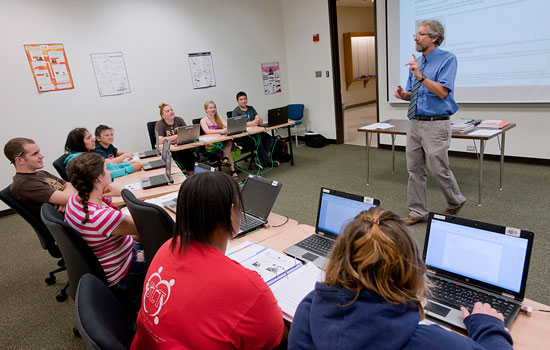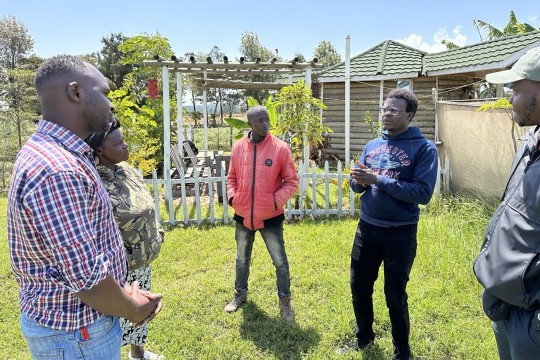NTID hosts convention of teachers of the deaf
150 will attend and learn best practices from each other
Mark Benjamin
NTID is hosting the 64th biennial Convention of American Instructors of the Deaf next week.
About 150 teachers and other professionals who work with deaf and hard-of-hearing students, from preschool to college, plan to attend the 64th biennial Convention of American Instructors of the Deaf (CAID) next week on the campus of Rochester Institute of Technology.
They will come to Rochester — known as having one of the largest per capita deaf populations in the country — from as far away as Ethiopia to learn the best practices used by their colleagues.
“With all the new technology that has taken place, many of us would like to learn more about how to apply technology in class,” says CAID President Keith Mousley, an associate professor in the Science & Mathematics Department at RIT’s National Technical Institute for the Deaf. “This conference brings people together to share the experience of what works for them and what doesn’t. Often this convention provides the only opportunity to interact with teaching colleagues from other institutions.”
Established in 1850, CAID is the oldest organization of teachers in the United States. For more than a century, most of those interactions had to be face-to-face or through written correspondence. Rochester last hosted the convention in 1981, Mousley says.
“There are so many teachers who are out there all alone,” says Larry Quinsland, a professor in NTID’s Science & Mathematics Department and past president of CAID. “I met a woman from Wyoming who drives 130 miles a day to teach three kids. She has no one to talk to. What CAID does is try to link these people so they have someone to talk to.”
Quinsland says the convention’s overall theme is “best practices.”
“We want people to come and brag about something that really works,” he says.
The convention officially starts Wednesday, although pre-conference workshops and meetings are being held Monday and Tuesday. “Graphic Storytelling,” “Embracing the Visual Nature of Deaf Education” and “Teaching Critical Thinking to Deaf College Students” are among the more than 50 workshops, roundtable discussions and exhibits scheduled. Many are being taught by RIT/NTID faculty members.
Keynote speakers are Todd Pagano, an associate professor and director of NTID’s Laboratory Science Technology program, and Marc Marschark, director of NTID’s Center for Education Research Partnerships.
At 8 p.m. Thursday, the final performance of AstroDance, an innovative multimedia performance that uses dance to tell the story of black holes and the gravitational pull of particles in the universe, will be offered in the Robert F. Panara Theatre. The RIT/NTID-based dance company is finishing its northeast tour and the performance will be followed by questions and answers by RIT faculty involved in astrophysics. Admission to the performance is free and open to the public.














